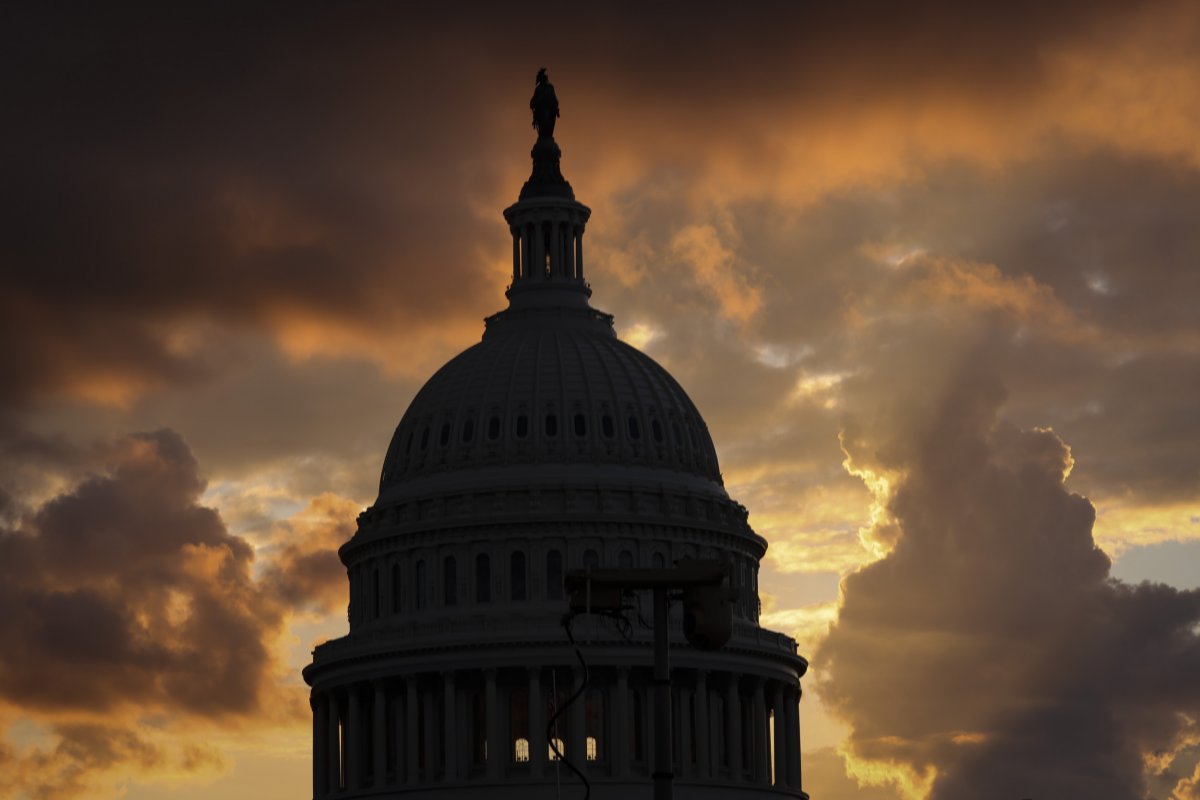President Joe Biden's massive expansion of the social safety net—crucial to his campaign promises—is yet again at a crossroads. Meanwhile, Democratic infighting has again created hurdles for what earlier this week appeared to be a path to passage.
"An agreement is within arm's length, and we are hopeful that we can come to a framework agreement by the end of today, but we must continue working a little more to make sure it is the best deal possible for the American people," Senate Majority Leader Chuck Schumer, a New York Democrat, said from the Senate floor Wednesday morning.
But hours later, key proposals within the massive overhaul of the social safety net, dubbed the Build Back Better agenda, already started to fizzle. Progressive Democrats stuck to their position that they need to see actual legislation—not just a loose framework—or they will block a separate bipartisan infrastructure bill.
"We need to get the legislative language written so that we are very sure that there's no misunderstandings from anybody about what we're agreeing to," congressional Progressive Caucus Chair Pramila Jayapal, a Washington Democrat, told reporters Wednesday as negotiations continued behind the scenes. "We all need to get it done. —we need to get both bills out."
Jayapal's stance pushed back on House Speaker Nancy Pelosi's insistence that a "framework" could be enough for a vote on infrastructure.
Pelosi, a California Democrat, has openly expressed opposition that Democrats could bust through the logjam in the coming days.
"As we prepare for a unified White House-House-Senate initiative, we salute the President for his bold vision and his values-based leadership to make this victory possible," she wrote in a statement to members of her caucus on Wednesday.
Biden and top members of his administration have spent recent weeks meeting with members of various caucuses and factions within the Democratic Party to build consensus before he heads out for diplomatic meetings in Europe for a week. He leaves Thursday, and White House Press Secretary Jen Psaki told reporters there is little wiggle room in his schedule to delay his departure if a deal is close but hasn't been reached.
Biden had proposed an aggressive $3.5 trillion spending plan that would provide for universal pre-kindergarten for three- and four-year-olds; free community college; paid family leave; expansion of federal health care programs; and new initiatives targeted at fighting the climate crisis. Biden also proposed the separate long-discussed and bipartisan-backed $1.2 trillion "hard infrastructure" package to upgrade roads, bridges, ports, broadband and other pieces of the nation's crumbling infrastructure.
"When it gets to the final stages of [legislation] there is a discussion about how you can achieve the goals you all share—an objective to achieve—and that is what we're doing now," Psaki said of the latest status. "What we're talking about is, which components of cutting costs and making healthcare more affordable and accessible there is enough agreement on to get this across the finish line—so those are the final details that need to be worked through."
Paid leave terms, climate change initiatives, taxes to pay for the new policies, Medicare expansions for elderly patients to get vision and dental care, and other priorities have been key sticking points throughout the months of debate.
Senator Joe Manchin, a crucial vote for Democrats in the 50-50 split Senate, has been a steady holdout. However, he has expressed optimism over the potential for a deal, which Democrats have incorrectly described as imminent for several weeks and have blown through several self-imposed deadlines on.
"We'll see what happens," he told reporters at the Capitol on Wednesday. "There's 50 of us."

Uncommon Knowledge
Newsweek is committed to challenging conventional wisdom and finding connections in the search for common ground.
Newsweek is committed to challenging conventional wisdom and finding connections in the search for common ground.
About the writer
Elizabeth Crisp is a Washington Correspondent for Newsweek, covering the White House and Congress.
She previously was the Washington Correspondent for ... Read more
To read how Newsweek uses AI as a newsroom tool, Click here.








